Weather has been good in Northland. After some rain, the weather's cleared to allow farmers to sow grass seed and get some mulching done. The main challenge ahead is how to manage the transition into calving with already reasonably wet soils. Ground cracking has not occurred this year, indicating the soil water table is high. It looks like it will be all hands on deck to get through to spring.
Temperatures have definitely dropped in Waikato, not enough for a frost just yet though. Some of the maize crops were taken off this week. The crop was down 20 per cent thanks to Cyclone Gabrielle. Livestock are generally ahead compared to the last three years of drought-like conditions. There's no doubt, with the current levels of grass growth, this winter will be better than the last.
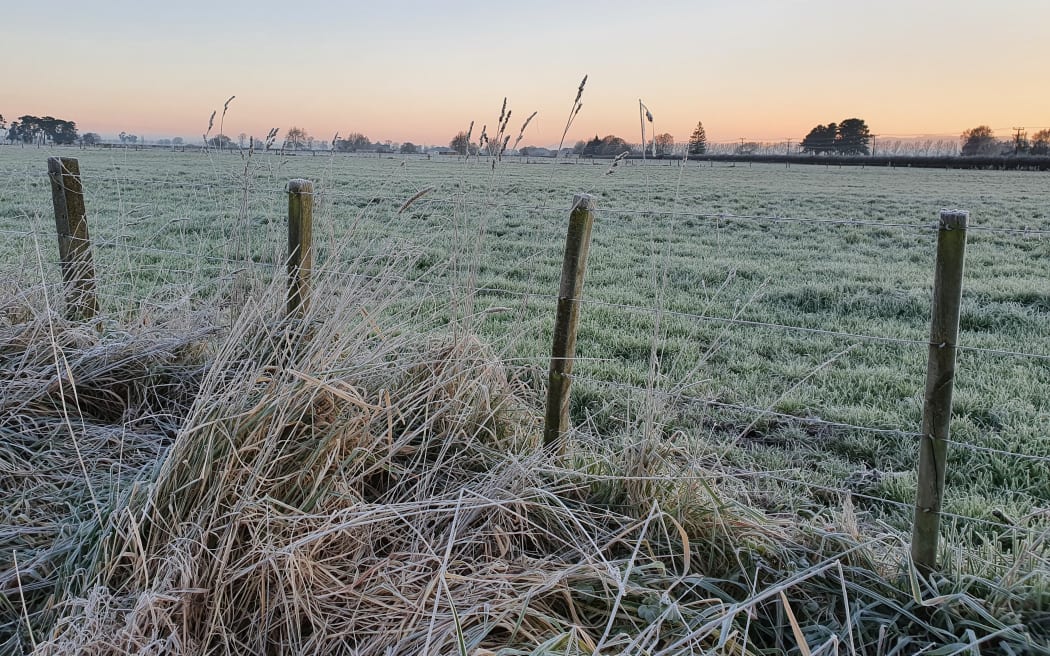
Photo: Frank Bollen
Drier weather of late in Bay of Plenty has been welcomed over the kiwifruit harvest. The wet summer means fruit isn't as mature as growers would like. But good sunshine this week has seen a sharp lift in fruit growth. Ninety per cent of red kiwifruit is off the vines with gold underway and the green variety picking up this week. There's a month's window to pick gold at the best stage, while the majority of green will be harvested from May through to June.
It's been the best March ever for Taranaki. There was no sign of dry through February and as a result, there's been plenty of grass. It means cows are happy and farmers are pretty happy too as most have seen milk production increase through the month which has helped regain Spring losses. From now through to May farmers will start drying off their cows, but for those looking fat and healthy will be milked through to the end of autumn. Facial eczema rates rose a bit due to moist and warm conditions, but farmers seem to be on top of it.
There's been plenty of pasture growth in Manawatu but the wet conditions mean cattle are more susceptible to worm issues, and the lack of sun has slowed growth rates for younger stock. Some farmers are holding onto their lambs in the hope that prices will increase in the coming weeks. Farm repairs are underway on cyclone-damaged fences, tracks, and bridges.
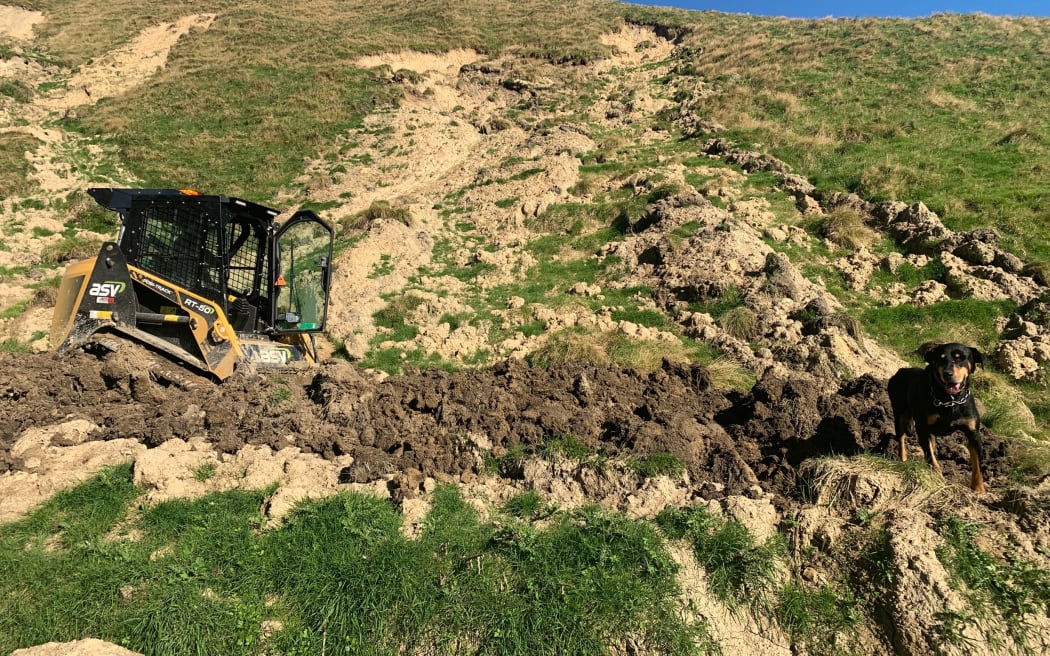
Repairs under way in Wharekōpae Pāmu farms after Cyclone Gabrielle caused damage in the area. Photo: Supplied / Pāmu
There've been three weeks without rain in Gisborne. Nice clear days have helped to dry everything out and given feed levels a kick-along. There is a lot of sediment around and it's taking longer to recover than anticipated with nerves rising as winter looms. The sediment somehow needs to be scraped back to put grass seed in and start again. but stock have done remarkably well, all things considered. There have been a lot of surplus lambs about ... they're not able to get to the works from farms isolated because of cyclone damage. But the number of trucks on the road is picking up.
Some cyclone-affected farmers in Hawkes Bay are wondering what to do in terms of repairing and redeveloping damaged farmland. One farmer says lower-lying paddocks that were flooded will not be able to be grazed until next season. Despite some wintry weather this week the sun's out and grass growth has been fantastic and a blessing for people who are not able to move stock off their properties.
A Wairarapa arable farmer says the tail end of wheat and barley harvesting has been delayed by the wet conditions. Ditto for getting the straw in paddocks onto trucks as it's too muddy.
A Martinborough grape grower says harvesting began three weeks ago but with all the rain this summer it's been a challenging season.
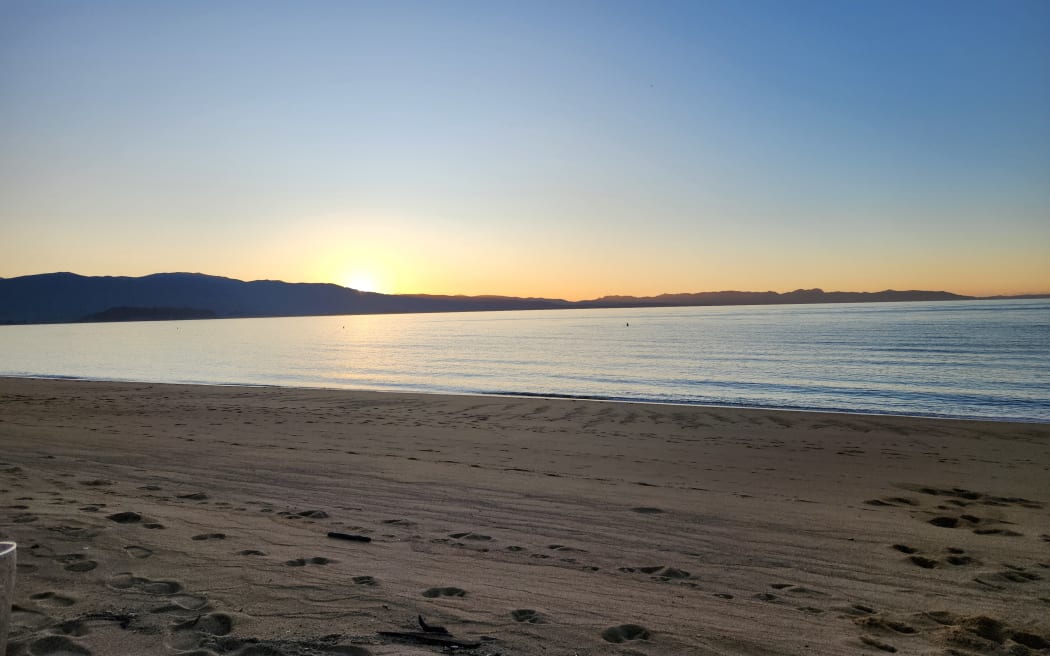
Late summer sun setting over Farewell Spit, Golden Bay Photo: RNZ/Sally Round
Cooler nights in Nelson have helped redden late-season apple varieties but they do slow down the maturing of the apples. It's been good consistent weather over the past few weeks for the pip fruit harvest which is well through now. It's been one of the most challenging seasons, though, for labour our contact says. He usually relies on backpackers but he's found they're generally not fit enough for the hard work involved and they lack experience. The higher minimum pay rate means he's had to leave some fruit unpicked because it's just not economic to harvest.
A Marlborough vineyard is 85 percent through the harvest. The weather has been brilliant for ripening and picking over the last month...just a few showers here and there and the fruit is looking great. On the farm there's plenty of feed and grass is still growing going into the autumn.
Stags are roaring on the West Coast preparing for the autumn rut. The first frost and a bit of snow on the ranges had the woollies out this week ... it feels like quite a sudden turn in the weather. The cold snap has thankfully put a lid on the relatively high facial eczema count. It's been good weather for getting maize off and there's generally plenty of tucker around.
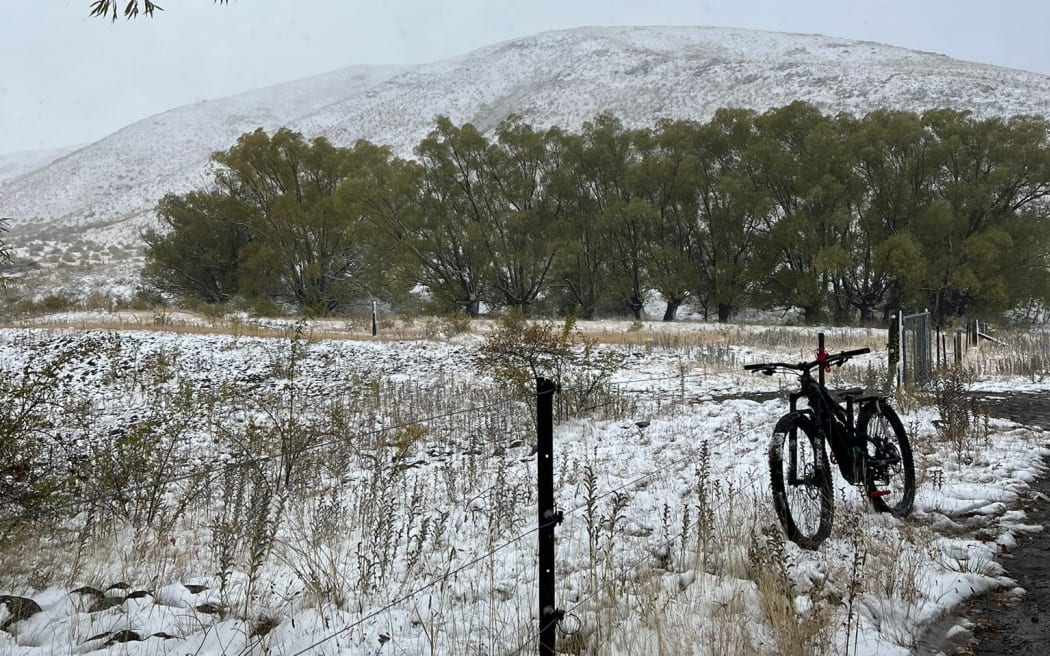
Early autumn snow at Molesworth Station Photo: Ruth Lee
It's been a great autumn for growing grass with regular large rainfalls in Canterbury. Dryland areas are well set up for the winter. The flipside though is that harvesting later crops has been a battle ... there've been only very small windows to get the headers out of the shed. Autumn sowing of clovers and grass for seed is mostly complete and cereals will be done in April.
Seventy to 80 millimetres of rain in March has a South Otago farmer smiling. It had been very dry. The rain is timely for mating and the ewes are gaining condition nicely. With more moisture in the soil, nitrogen is being applied ... it's important to make the most of fert when costs are so high and lambs are achieving 20 to 30 dollars less than last year. The wool is off but our farmer still has to sell it. He says it's looking to be a pivotal year for sheep farmers and many farms round about are going into pines.
There's been enough rain in March to help farmers in Southland catch up after the dry summer. The ewes were under pressure for a while there but they're looking good now and the rams will be heading out in the next couple of weeks, a bit later than normal. With grass growing, lambs can be fattened. One of our contacts is doing a bit of maintenance ahead of downsizing considerably. It's nothing to do with him, he says ... the dogs are getting slower and the sheep are getting faster!
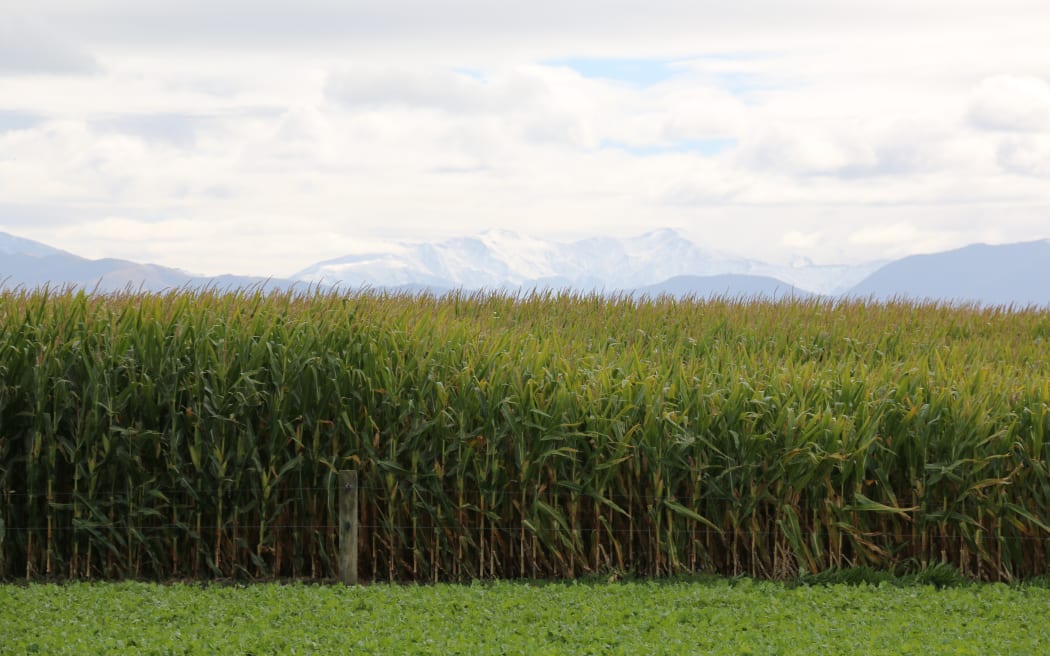
Snow has fallen quickly on the ranges around Canterbury. Photo: RNZ/Cosmo Kentish Barnes

